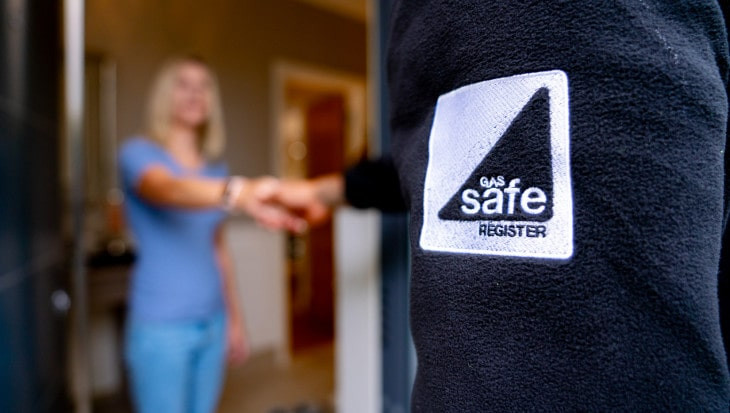If you’ve earned rental income in the UK but haven’t informed HM Revenue and Customs (HMRC), it’s necessary to take action quickly. The penalties for not declaring rental income can be significant.
In cases where you unintentionally failed to report rental income, the penalty can range from 10% to 30% of the tax owed. If prompted by HMRC to disclose, the minimum penalty is 20%. However, if you voluntarily declare, the fines are lower.
But if you don’t, HMRC could charge up to 200% of your undeclared income. It’s vital to follow UK tax laws and report all rental income to avoid these penalties.
What are the laws and regulations for declaring rental income in the UK?

Let’s have a look into the UK laws and regulations regarding rental income declaration in more detail
Rental Income and Taxation
Rental income refers to the money you receive from tenants for letting out your property. This includes payments for various services, such as furniture use, cleaning of communal areas, heating, and repairs.
As a landlord, you must pay tax on the profit you make from renting out property. The amount you pay depends on your total profit, which is calculated by subtracting allowable expenses or allowances from your rental income.
Types of Property Ownership
Joint Ownership: If you share ownership of rental property with others, your tax liability depends on your share of the property. Jointly owned property is not treated as a separate business.
Property Owned with Spouse or Civil Partner: Married couples and civil partners who live together are usually taxed equally on jointly owned property. Unequal shares require proportional taxation based on beneficial interests.
Property Owned with Others: If you jointly own property with someone other than a spouse or civil partner, your tax liability is based on your ownership share unless you agree otherwise.
Record Keeping
Accurate records are crucial for calculating taxable profits. Separate records for fully-furnished and unfurnished/part-furnished lettings are essential.
Keep records of rent received and expenses incurred to determine the profit subject to taxation.
Key Requirements for Declaring Rental Income
If your rental income meets specific criteria, you must report it on your annual self-assessment tax return.
Criteria include
- Rental income between £2,500 and £9,999 (after allowable expenses).
- Rental income of £10,000 or more (before allowable expenses).
Allowable Expenses
Deduct allowable expenses when calculating profit
- Letting agents’ fees
- Legal fees (for lets of a year or less)
- Maintenance and repairs (excluding improvements)
- Utility bills (gas, water, electricity)
- Council Tax
- Other direct costs related to letting the property.
If you haven’t reported rental income from previous years, you can declare it to HM Revenue and Customs (HMRC). The penalty will be lower than if HMRC discovers it independently.
What happens if you don’t declare income UK?

If you don’t declare income in the UK, it can lead to serious consequences. Here’s what you need to know
Penalties and Interest
If you’ve earned income that you haven’t reported to HM Revenue and Customs (HMRC), you may face penalties and interest on top of any tax owed.
The penalty rates vary based on whether you voluntarily disclose or if HMRC discovers the undeclared income independently. In more severe cases, there’s even a risk of criminal prosecution.
Types of Undeclared Income
You should declare income from various sources, including
- Renting out property
- Capital gains (e.g., selling property, valuable items, or shares)
- Self-employment (including regular sales online or at car boot sales)
If this income exceeds your Personal Allowance, you’re liable to pay tax on it.
Self Assessment
If you’re already registered for Self Assessment, but haven’t declared all your income, you can make changes to your return.
If you don’t usually send a tax return, you can register for Self Assessment to declare any income you haven’t paid tax on from the last 4 years.
Overseas Income
If you’re a UK resident, you must report foreign income in your Self Assessment tax return.
Failing to report foreign income may result in both the undeclared tax and a penalty (up to double the tax owed).
Voluntary Disclosure
Reporting undeclared income voluntarily, before HMRC suspects anything, is likely to be viewed more favorably.
You may also be eligible for an ‘offshore disclosure facility’ if you haven’t disclosed foreign income.
How Penalties Are Calculated?

Penalties for undeclared income in the UK are calculated based on various factors.
The calculation typically considers the amount of income that wasn’t declared, whether the failure to declare was intentional or unintentional, and if the disclosure was voluntary or prompted by HM Revenue and Customs (HMRC).
The penalty amount often correlates with the amount of income that wasn’t declared. Generally, higher amounts of undeclared income result in higher penalties.
HMRC distinguishes between deliberate and unintentional non-disclosure. Deliberate non-disclosure typically incurs higher penalties than unintentional errors.
If individuals voluntarily disclose undeclared income to HMRC before any investigation or enforcement action, the penalty may be reduced compared to cases where HMRC discovers the undeclared income independently.
FAQ
How many times can a landlord increase rent in the UK?
For a periodic tenancy, a landlord can typically increase rent once a year without the tenant’s agreement. However, for a fixed-term tenancy, the rent can only be increased if the tenant agrees or when the fixed term ends.
What is the maximum a private landlord can increase rent in the UK?
The maximum rent increase for a periodic tenancy is once a year without tenant agreement. For a fixed-term tenancy, the rent can only be increased if the tenant agrees.
How does HMRC know about undeclared income in the UK?
HMRC actively tracks undeclared income using methods like Connect, which monitors data in real-time. If your declared income doesn’t match your lifestyle, HMRC may suspect tax fraud.
Can a landlord sue for unpaid rent in the UK?
Yes, a landlord can sue for unpaid rent. If a tenant is in rent arrears, the landlord can issue a section 8 notice and take legal action to recover the unpaid rent.
Do you have to declare income from a rental property in the UK?
Yes, you must declare rental income from property to HMRC. Your profit is calculated by subtracting allowable expenses from rental income, and you pay tax on the resulting profit.
Final thoughts
In short, not declaring rental income in the UK can result in significant penalties. Whether you accidentally forgot or deliberately chose not to report, HM Revenue and Customs (HMRC) takes it seriously. Penalties range from 10% to 200% of the undeclared income, depending on various factors. It’s crucial to be honest and timely in reporting rental income to avoid these penalties.



